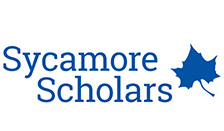Abstract
Introduction: As athletic training employment settings expand and diversify, so does the patient population with whom these healthcare providers interact. This growth furthers the need to ensure that students enrolled in an athletic training program (ATP) accredited by the Commission on Accreditation of Athletic Training Education (CAATE) are educated to provide culturally competent care. Culturally competent care is provided when decisions made diminish the inequalities that may be present in a system based upon a patient’s individual circumstances. Implementing cultural competency education may be integrated into athletic training education in various manners as necessitated by each institution’s unique circumstances. Programs may choose to deliver cultural competency education through a traditional classroom setting utilizing assignments, guest speakers, and other conventional supplemental tools. Other programs may utilize a study abroad or international experience to illustrate the importance of providing culturally competent care. A study abroad experience may help position athletic training students in situations that may make them uncomfortable. Doing so will challenge the way these learners typically interact with diverse individuals, thus providing them the opportunity to develop and practice the skills needed to become confident in delivering culturally competent exchanges. Not only can one see heightened capabilities through such an experiential learning process but is has been noted that individuals who participate in a study abroad as part of a health care education program often develop a changed personal perspective regrading patient centered care. Such skills are important to those patients who may experience disparities based on a single characteristic of their background or the intersectionality of several components. Methods: While the topic is interspersed throughout the entire program’s curriculum, a CAATE-accredited ATP has developed a curriculum that culminates with a course focused on exploring cultural competency. The hallmark of this course is a study abroad experience which follows a traditional classroom exploration of numerous cultural and societal factors. The study abroad occurs in a different country each year, allowing for a broader spectrum of cultural interactions for both the learner and the faculty members. This type of event provides the students with an immersion into another culture, including but not limited to educational and health care systems. Expected Outcomes: Students gain intimate knowledge into the impact that race, ethnicity, religion, sexual orientation, and socioeconomic status among other criteria may have had on healthcare during the didactic portion of their curriculum. During a study abroad experience, students will develop further confidence in communicating with those who do not speak the same language, navigating new forms of transportation, and develop an appreciation for healthcare systems in other countries. Athletic training students will return with a broadened perspective of whole patient health care and the ability to apply first-hand what they have learned in the didactic portion of their program. Translation to Practice: Students enrolled in an ATP are educated in culturally competent, patient-centered care. Often, the learners’ traditional clinical rotation sites are somewhat homogenous due to geography, and they may not be exposed to varying social determinants of health. The ability to take them beyond their norms and have them interact with those of another culture will aid in creating a more well-rounded, confident healthcare provider for their future patients.
Recommended Citation
Johnston Green, A L. and Heffner, C J.
(2024)
"Traveling the Pathway to a Culturally Competent Health Care Provider: Incorporating Study Abroad into your Curriculum,"
Clinical Practice in Athletic Training: Vol. 7:
Iss.
1, Article 10.
Available at:
https://scholars.indianastate.edu/clinat/vol7/iss1/10
Included in
Exercise Physiology Commons, Medicine and Health Sciences Commons, Systems Engineering Commons

